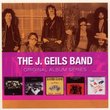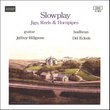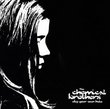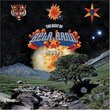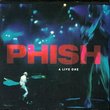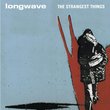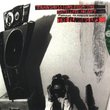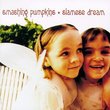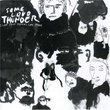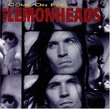| All Artists: John Coltrane Title: Ascension: Editions I & II (Reis) (Rstr) Members Wishing: 2 Total Copies: 0 Label: Verve Original Release Date: 1/1/1966 Re-Release Date: 3/24/2009 Album Type: Original recording remastered Genres: Jazz, Pop Style: Avant Garde & Free Jazz Number of Discs: 1 SwapaCD Credits: 1 UPCs: 602517920248, 0602517920248 |
Search - John Coltrane :: Ascension: Editions I & II (Reis) (Rstr)
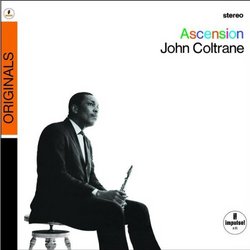 | John Coltrane Ascension: Editions I & II (Reis) (Rstr) Genres: Jazz, Pop
|
Larger Image |
CD DetailsSimilar CDs
Similarly Requested CDs
|
CD ReviewsDon't be Intimidated Gerrit R. Hatcher | 02/25/2010 (5 out of 5 stars) "Many reviewers pitch this album as an inaccessible work of spiritual transcendence that not just anyone can comprehend. To me this album, while certainly emotionally powerful at times, is a hard swinging and bluesy free-jazz blowing session for all the best in free and avant-garde jazz in this vein at the time. It swings hard throughout, even more so than Trane's releases with the classic quartet on records preceding this one. Compared to albums like Don Cherry's Symphony for Improvisors or Coltrane's later Meditations, this album has a very simple and easy to grasp structure. First a brief statement of the over-arching melodic idea, then alternations between blowing by full ensemble and longer solos by individual horn players over a fast minor blues kind of groove sound, which reaches a section the rhythm section solos more relaxedly (Mccoy Tyner totally changes the mood without damaging the direction of the piece and the two bassists get to play without Jones, putting the piece briefly in free-time), and then concludes with the full ensemble in free form/unity again.
The solos are engaging, and the variety of improvisational approaches, along with the great foot tapping poly-rhythmic groove of Elvin Jones, keep the marathon forty minutes varied and highly listenable. All the horn players do great, and all would go on to become big names, except for Dewey Johnson, who's name rarely comes up anywhere else. Where every sax player comes out with their own unique and engaging approach, Dewey comes off as clearly upstaged by the fantastic Freddie Hubbard, who does great in this context. Luckily Johnson's solo does not capture him testing his limits, but rather playing very solidly, if a bit conservatively. Archie Shepp and Pharoah Sanders showcase their very different approaches to freedom on tenor, with Archie focusing on rhythmic creativity and gritty tone, and Pharoah focusing on crazy harmonics, poly-phonics and screams. Both the alto players do great here, challenging the bombastic nature of the three tenors with more laid back approaches that still twist with inside out melodies. Second bassist Art Davis really helps give this album a strong tonal base, necessary to support the horde of horns. The first time you hear this album the cacophony of the horns will seem to be a bit much, but upon later listens it is enjoyable to pick out and follow individual players during these sections, which the great remastering allows the listener to do pretty easily. This is a great piece of history, and a powerful and enjoyable album. You can hear the sincerity of excitement amongst all the young horns, glad to be playing with the master, and to be contributing to such a powerful piece of music. Ascension is about joy and individualism, and at the same time it is about unity, and mutual respect. This record not only sets off Trane's free era, but also facilitates the careers of many of the sidemen. This reissue is probably the best deal in the original's lineup, as it includes both editions of Ascension, unlike other "originals" that cut off bonus content for no good reason. You get two LPs here for budget price. My only advice is to experience these two takes individually, they are each meant to begin and end on their own, and listening to both in a row will just overload your patience with this demanding music." |

 Track Listings (2) - Disc #1
Track Listings (2) - Disc #1